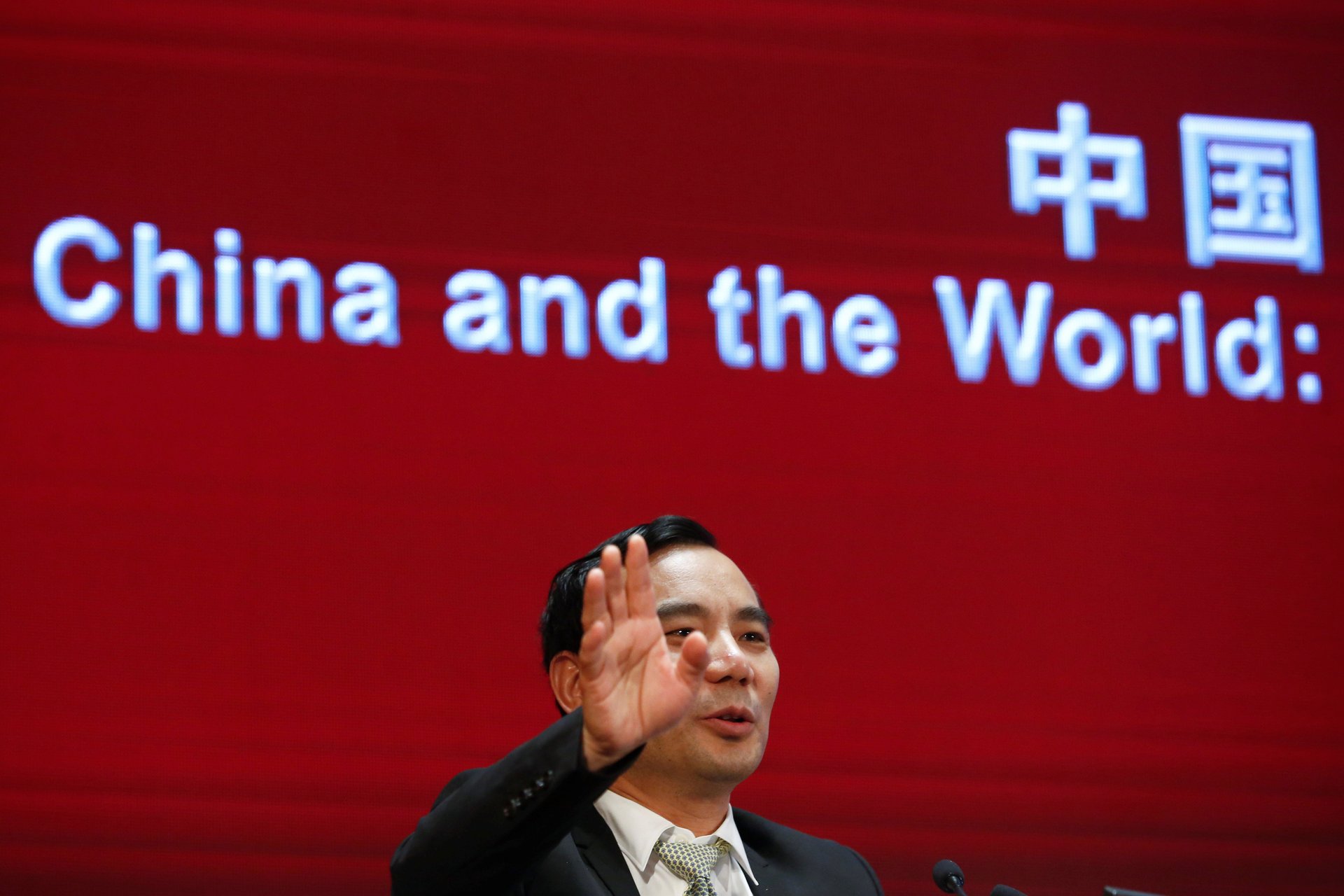The families of fallen Chinese officials and oligarchs are taking to Twitter to seek justice
Petitioning is an ancient practice in China where ordinary citizens who believe they cannot get justice through the legal system travel to the capital in the hopes of appealing directly to the emperor or leader. Now, members of China’s elite are adopting the tradition to to seek justice on an unlikely platform—Twitter.


Petitioning is an ancient practice in China where ordinary citizens who believe they cannot get justice through the legal system travel to the capital in the hopes of appealing directly to the emperor or leader. Now, members of China’s elite are adopting the tradition to to seek justice on an unlikely platform—Twitter.
In recent months, the families or allies of fallen giants such as Wu Xiaohui, the former chairman of insurance giant Anbang Group who was sentenced to 18 years in prison for fraud last year, and Zhou Yongkang, the former security czar who was charged with corruption in 2015, have aired their grievances on the social network, which is blocked in China.
It’s a rare show of defiance from China’s privileged class, long seen to be immune from the sorts of injustices that afflict ordinary citizens because of their close connections to the government. However, since president Xi Jinping launched an aggressive campaign to root out corruption in the Communist party—seen by many as a way for him to purge enemies—China’s elite increasingly believe that their privilege does not offer them the same protections as it once did.
One example is a user claiming to be the mother of the former Anbang boss. “Where is justice?” says the account’s bio. The account details how authorities have repeatedly barred her and lawyers from visiting Wu since he was imprisoned in a Shanghai jail last May.
“Who is preventing a mother from meeting her son? This is a crying petition from a mother weeping blood!” said one tweet posted on July 7.
Wu, whose third marriage was with Deng Zhuorui, the granddaughter of late paramount leader Deng Xiaoping, was at one point the symbol of ultimate power and wealth in China. Under his leadership, Anbang transformed from a small car insurance business to a giant conglomerate with more than $300 billion in assets and ambitious overseas acquisitions including New York’s Waldorf Astoria.
Yaxue Cao, founder of US-based human rights advocacy group China Change, called Twitter the “new petition bureau for fallen members of China’s privileged class.”
Neither the Twitter account purporting to be Wu’s mother nor a lawyer hired by Wu’s family to defend him replied to requests for comment from Quartz.
Before venturing onto Twitter, Chinese citizens used Weibo, the country’s largest social network, to vent injustices. So many ordinary citizens were treating Weibo as a “petition bureau” to discuss mistreatment by the government that it gave birth to a new term called “Weibo Governance” (link in Chinese). But Weibo, like almost all other corners of the Chinese internet, has been subjected to increasingly tight censorship in recent years, making petitioning on the platform almost impossible.
That’s forcing some people to use Twitter instead. The network, though unavailable inside China without the use of a virtual private network (VPN), provides “petitioners” with exposure to international media as well as a more readily receptive audience. Yaqiu Wang, a Chinese researcher with advocacy group Human Rights Watch, said that people who are already active on Twitter include “Chinese activists, writers, and human rights lawyers as well as non-Chinese scholars and journalists” who are “more likely to speak up for those who have fallen victim to China’s opaque and abusive justice system.”
In the case of Zhou Yongkang—who is the most senior Chinese official to be prosecuted for graft in decades—his daughter-in-law, Huang Wan, has taken to Twitter to voice her complaints about not being able to leave China as an American citizen. Huang has been placed under an exit ban (paywall) by Beijing due to an ongoing legal dispute about a lease, according to China’s foreign ministry. Huang’s husband Zhou Bin was sentenced to 18 years in jail in 2016 for taking bribes, and his stepmother—Zhou Yongkang’s second wife—was also given a prison sentence.
Huang did not reply to a request for comment.
“I would like to apologize to all the citizens who suffered unfair treatment under Zhou Yongkang,” Huang wrote in a tweet in February. “I know how many obstacles there must be during the process of petitioning your grievances, and now I’ve also embarked on such a journey. Please, to all Chinese officials, do you think your’ve got greater power than what Zhou had back then? Even he could not protect his family, so how can you protect yours if similar things happen to you?”